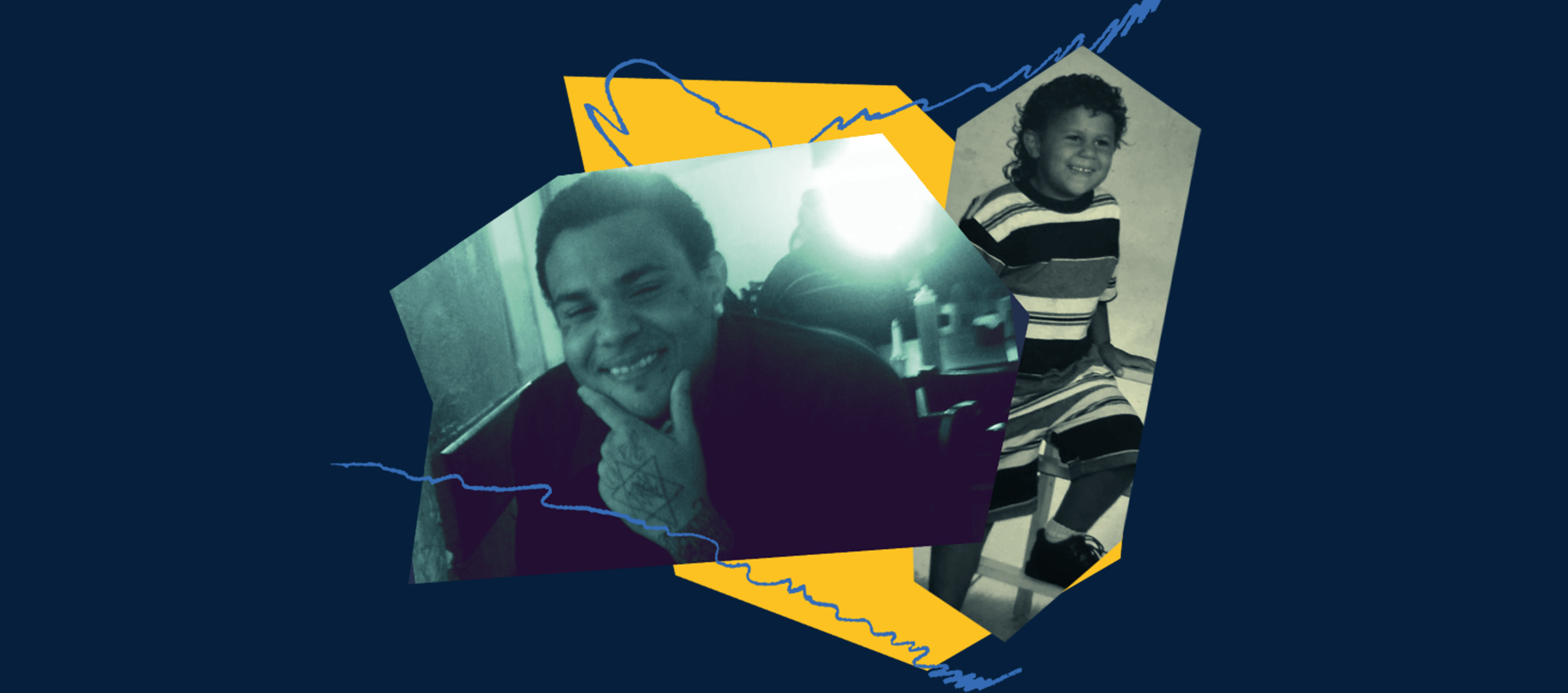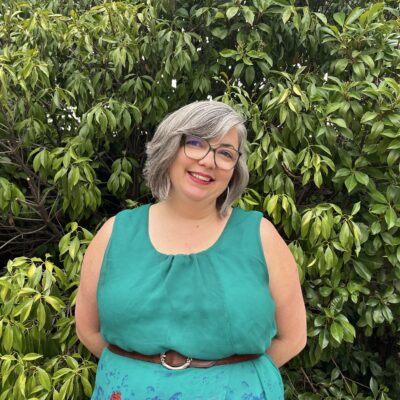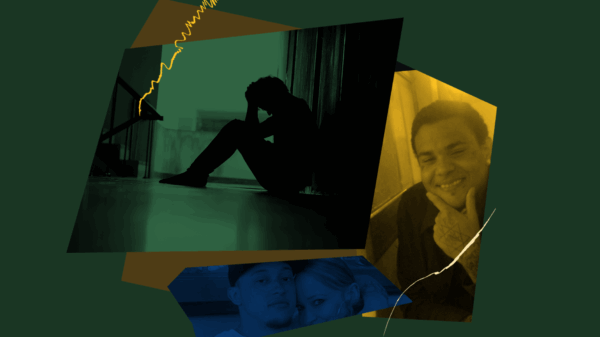Note: This blog is the third of a series based on interviews with three men currently held in the Penitentiary of New Mexico who are part of a class action lawsuit challenging the inhumane and unconstitutional conditions of New Mexico’s long-term solitary confinement unit.
Movies and TV played a big part in the strong relationship GuJuan has with his mom. Some of his greatest childhood memories are of going to Blockbuster on Fridays with his mom, renting seven or eight movies, stocking up on candy, and spending the weekend watching them together.
He also developed a passion for reading at an early age. It all started when he discovered a book called Emako Blue, about a young Black girl navigating her uncertain and difficult world. “It was the first time I saw a Black kid in a book,” GuJuan says. “That book’s stuck with me my whole life; it’s what brought me into reading.” Now, GuJuan loves reading all kinds of books, but especially horror and historical fiction. He loves anything by Anne Rice; “I can read her ALL day long.”
GuJuan was locked up for the first time when he was 14. He was 20 when he first went to adult prison. Because he has not been given the help that he needs, GuJuan has struggled to change the path that started with his juvenile incarceration. This is GuJuan’s second time in the solitary confinement unit. He has spent over a third of his sentence in the unit, including a time when he went nine consecutive months without family contact.
“I was interested in being a part of this lawsuit because of the simple fact that what they're doing to us is cruel—we're being treated like animals,” GuJuan says. “They’re not doing anything to help us become better people, grow as men, or grow as human beings—they're worsening it. I want them to give us the power to be able to make something of ourselves, to grow for ourselves. That’s the power we want.”
"What they're doing to us is cruel—we're being treated like animals."
Dehumanizing
Although the Corrections Department calls the solitary unit a “program” aimed at addressing problematic behaviors, in truth, the men confined there just sit in concrete boxes and suffer for months and years on end. “All I feel is dehumanized and lied to,” GuJuan says. “It’s wrong what they are doing to us.”
GuJuan reflects on how his life has been shaped by the streets, admitting he’s striving to learn and be a responsible adult. “I’m turning 35, and I don’t even know what a grown man is yet. I’ve never experienced how to be a grown man with responsibilities.” He hopes that people will begin to see him and others in the unit “not for who we were, but for who we’re trying to be.” He acknowledges and takes responsibility for his past mistakes but emphasizes, “that’s not who I am, and not who I want to be.”
What They Need
When talking about what would be a better alternative to solitary confinement, GuJuan says, “Teach us. Show us. Give us outlets to deal with our anger, deal with our depression, and grow as individuals and as people—not just lock us in a cell for 23 hours a day. Teach us skills, how to balance a checkbook, and fill out job applications.”
“What would make for less violence in prison? Opportunity!"
“What would make for less violence in prison? Opportunity!” Many of the men locked up in the solitary unit grew up in situations in which they had no real opportunities. When they were bored, they got into trouble. “It’s the same cycle,” GuJuan says, “But it's worse up here—nothing to do, no contact, no outlet. Give us something to do, something to care about. If we have no hope that something is going to change, eventually we just give up.”
Fear of Being with People
GuJuan has been in prison for 12 years, and he is getting ready to go home next year. “I'm scared to death,” GuJuan says. “I've been stuck in a room by myself for over two years with no significant contact except someone putting handcuffs on me to take a shower. I'm scared I'm going to get out and not know how to deal with people.”
Even being back in the general prison population was challenging for GuJuan after his previous stay in solitary. “It was horrible,” he says. “After having no human contact except yelling through doors or cages, then going to constant interaction and noise, I was on edge.” That was why GuJuan got in trouble again and ended up back in solitary. “I’m so prone to having bad anxiety being around people—I’m scared the same thing can happen on the streets.”
“If I could change by myself, I wouldn’t be in this situation.”
His mom is so excited to finally have her son home again, and GuJuan doesn’t want to mess it up. “She has the same fears as me,” he says, “she’s so supportive, but there’s only so much about what I’m going through that she can understand.”
Mental healthcare and resources would help bridge this gap, but GuJuan has received no professional help while in solitary confinement. “This place has done nothing to help me,” he says. “If I could change by myself, I wouldn’t be in this situation.”
Fighting for Others
“I want to make sure the world knows that we need help here. There are people that want change in their lives. We're tired of being nothing,” GuJuan says. “Change needs to come and we can't do it alone. If the world comes to help us, we won't let them down—this isn't just a fluke for attention; this is real life, and we want change.”
According to GuJuan, being part of the ACLU’s lawsuit gives him and those in the unit a voice. “Now the world can see we're more than a prison number,” he says. “We're humans and we want to be looked at as such. I want to be a man, husband, father, and son. I want to be happy. I don't want to be a criminal, convict, or stereotype.”
What We Need
“We don't want to be pitied—the attention we want is to be seen as people,” GuJuan says. He wants to be allowed to participate in prison programming, like anger management, cognitive therapy, and educational opportunities. “That’s the kind of attention we want.”
“I want to feel safe talking to a mental health professional."
Individuals in the solitary confinement unit only get to speak with mental health staff through their cell doors, and usually only for a few minutes once a week. “We can’t talk about our anxiety and fears when 12 other men can hear our weaknesses,” GuJuan says. “I want to feel safe talking to a mental health professional; that’s the whole point—but they don't offer us a safe place.”
“I'm going home, but there are people who will have to keep dealing with this dungeon, this hell,” he says. “They have nobody to talk to. That’s why I’m so passionate. If I’m able to be part of the spark that does bring change to future people going through this, it’s an honor to me.”




